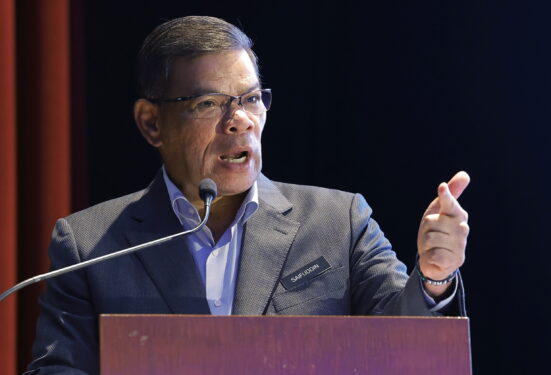TOKYO/LONDON: Oil prices were up today but well below peaks hit in frenzied early trading after a rocket attack by Iran on American forces in Iraq raised the spectre of a spiralling Middle East conflict and disruption to crude flows.
Prices gave up most of their early gains as analysts said market tension could ease as long as oil production facilities remain unaffected by attacks. Tweets by US President Donald Trump and Iran’s foreign minister also appeared to signal a period of calm – for now.
Brent crude futures were up 26 cents, or 0.38%, to US$68.53 by around 0908 GMT, after earlier rising to their highest level since mid-September 2019 at US$71.75.
West Texas Intermediate crude futures gained 10 cents, or 0.16%, to US$62.80 a barrel. It earlier hit US$65.85, the highest since late April last year.
Iran’s missile attack on US-led forces in Iraq came early on Wednesday, hours after the funeral of Qassem Soleimani, the commander of the country’s elite Quds Force killed in a US drone strike on Jan. 3.
Tehran fired more than a dozen ballistic missiles from Iranian territory against at least two Iraqi military bases hosting US-led coalition personnel, the US military said on Tuesday. Stock, currency and gold markets were also roiled by the attacks.
Trump said in a tweet that an assessment of casualties and damage from the strikes was underway and that he would make a statement on Wednesday morning US time. “All is well!” Trump said in the Twitter post.
‘Temporary phenomenon’?
Early indications suggested no US casualties, one source said, although other officials declined to comment. Iranian state television said 80 “American terrorists” had been killed and US helicopters and military equipment damaged.
Iraq, Germany, Denmark and Norway said none of their troops were killed or injured.
Executives and analysts said oil markets remained focused for now on the targets in the Wednesday attack being military, rather than oil industry facilities.
“I think the surge in oil markets will be a temporary phenomenon … US shale oil players will boost output if oil prices remain stronger,” said Toshiaki Kitamura, the chairman of Japanese oil and gas producer Inpex Corp, speaking at an industry gathering.
Still, he said, “There is no real reason to push down oil prices, either. So I believe oil prices will likely hover between US$60-70/barrel this year.”
In a research note, Goldman Sachs maintained its three-month view for US oil at US$63 a barrel.
“The recent rally in oil prices is unsustainable without actual supply disruption,” the bank said.
Opec response
The Organisation of the Petroleum Exporting Countries will respond to any possible oil shortages if necessary but it also has “limitations,” the United Arab Emirates energy minister said today.
Suhail al-Mazrouei also said he sees no immediate risk of supplies through the important Strait of Hormuz being blocked.
In Wednesday’s attack, Iranian news agency Mehr said Iran’s Islamic Revolutionary Guard Corps had targeted the bases in Iraq that hosted US forces. Tehran had vowed retaliation for the killing of military commander Soleimani.
“Iran took and concluded proportionate measures in self-defence,” Iranian Foreign Minister Jawad Zarif said on Twitter.
“We do not seek escalation or war, but will defend ourselves against any aggression.” – Jan 8, 2020 Reuters










